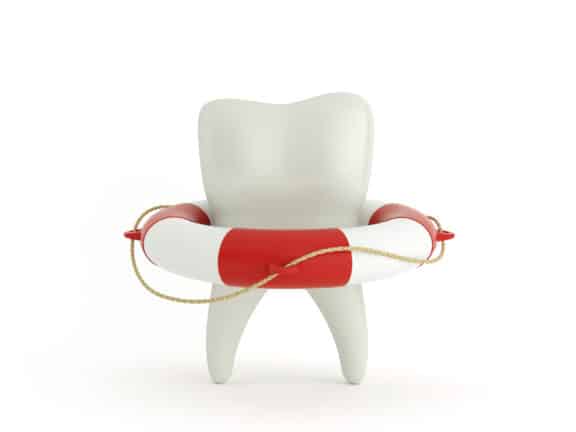Your natural teeth are ideally suited to the many tasks they perform. They support your ability to chew and eat properly, support your facial structure, and help you speak clearly. And, of course, your teeth are essential to a beautiful, healthy smile. With regular flossing and brushing combined with dental checkups and professional cleaning, your teeth can last a lifetime.
Missing or Damaged Teeth
At some point in your life, one or more of your teeth may be damaged in an accident, crack when you bite down on something hard, or develop a cavity. When any damage or disease affects a tooth, speaking to an endodontist about ways to save your tooth or teeth is crucial. Although pulling a tooth may seem like the simplest solution, a missing tooth often leads to problems later in life. These issues can be detrimental to your health and costly to treat.
Why Tooth Extraction Isn’t Always the Best Option
Although you may think pulling a damaged or decayed tooth is simpler and cheaper, it is always best to save your natural tooth. Missing teeth affect your ability to chew properly, interfere with speaking clearly, and allow your remaining teeth to shift out of alignment.
Over time, the missing tooth’s empty socket will collapse, and the surrounding bone deteriorate, leading to more expensive problems later in life. Replacing an extracted tooth can be costly and requires additional dental or oral surgeon trips.
How Endodontics Can Save Your Teeth
Endodontic treatment uses advanced technology and an endodontist’s skills to restore your natural tooth. There are several ways to save a damaged or diseased tooth and protect it against future issues. Proper endodontic treatment preserves your oral health and beautiful, natural smile.
Root Canal Therapy
A root canal must be performed if the pulp (the bundle of soft tissue and nerves inside the tooth) is infected or inflamed. During the root canal procedure, the damaged pulp is removed, the root canal is cleaned and disinfected, and these canals are sealed. The tooth will then receive a permanent restoration to protect the interior against reinfection.
Cracked Teeth
Cracked teeth can often be treated without root canal treatment if the damage has not reached the tooth’s pulp. Treatment options may vary from placing a crown to protect the visible portion of the damaged tooth to endodontic treatment.
Apicoectomy
An apicoectomy is a surgical dental procedure performed at the tip of the root when a tooth, which has been previously root canal treated has a recurring infection and further treatment is necessary to preserve your natural tooth.
Endodontic Treatment Relieves Pain
The rumors about root canals and other endodontic treatments being painful are outdated and inaccurate. Most people who undergo root canal therapy or other endodontic treatments are surprised by how little discomfort is involved.
During any endodontic treatment, the area is numbed with a local anesthetic. If you have dental anxiety, we offer various forms of anesthesia to ensure patient comfort.
Endodontic Treatment Recovery
Recovery from root canal therapy may result in some tenderness and sensitivity around the treated tooth for a few days. Most patients can manage discomfort with over-the-counter pain medications as recommended by their endodontist. It’s important to follow post-procedure care instructions diligently, including maintaining good oral hygiene and avoiding hard or sticky foods initially.
Over time, any initial discomfort typically subsides, allowing patients to fully enjoy restored dental health and function. Regular follow-up visits with your dentist ensure the tooth heals properly and remains healthy for years to come.
If you are suffering from a toothache, do not have it pulled without getting a second opinion. Although it is not always possible, endodontic treatments will likely save your natural tooth so that you can enjoy life with a gorgeous, natural smile for years. Call your nearest Leading Edge Endodontics to schedule a consultation and discuss your options.

